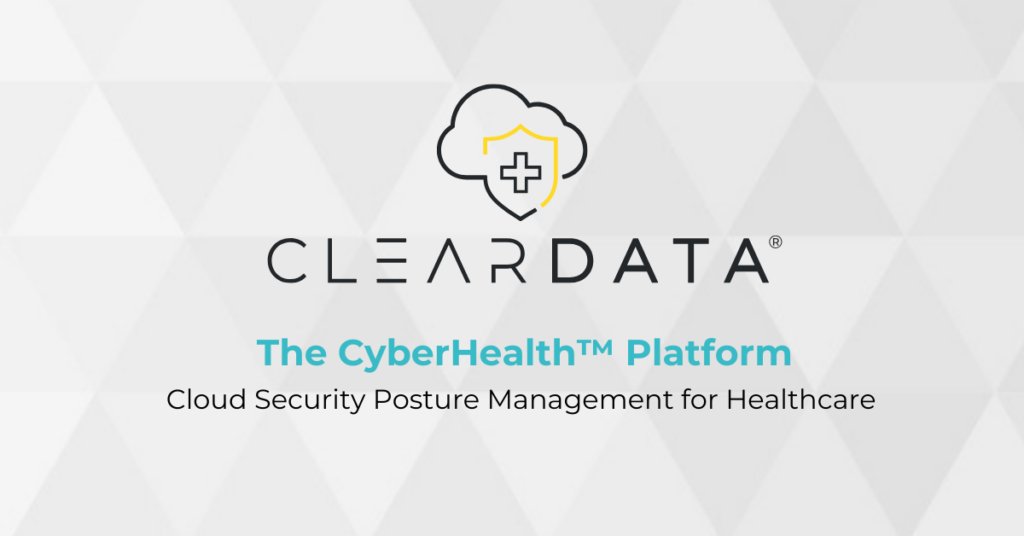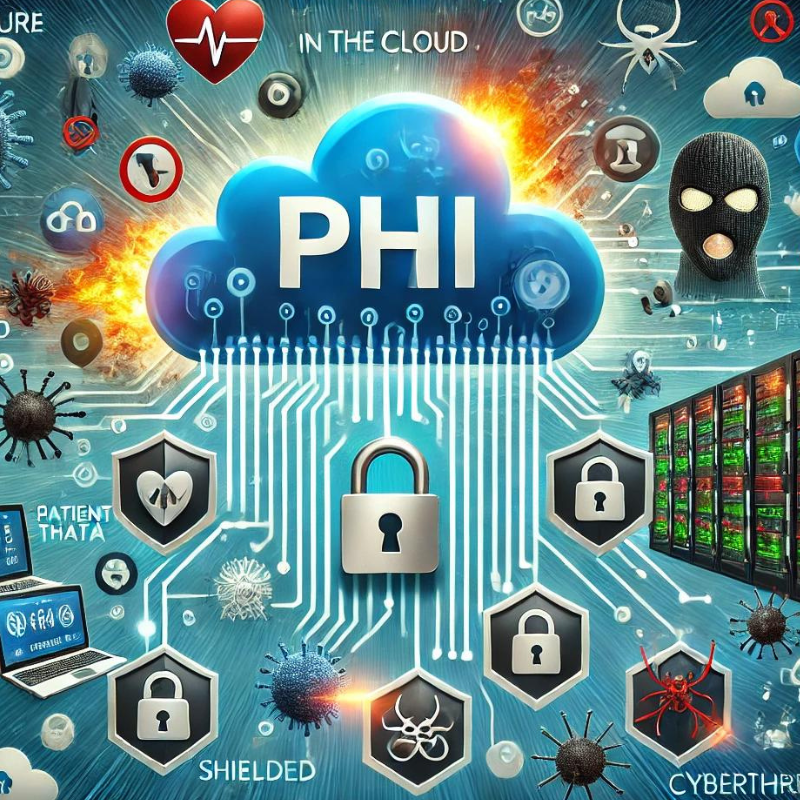Why Risk Using a Vendor Without Healthcare Compliance Expertise?
Table of Contents
The healthcare industry faces a daunting challenge with keeping patient data compliant and secure. It’s no longer, if, but when, healthcare organizations will experience a data breach.
Between the healthcare compliance requirements of HIPAA, GDPR, and HITRUST, trying to stay current can feel daunting. Additionally, managing security frameworks for incident response, such as NIST’s, can seem intimidating, especially to smaller cybersecurity teams.
Healthcare Cybersecurity Threats Coming From Every Angle
Data breaches are no longer hypothetical scenarios; they are a harsh reality. According to the Ponemon Institute’s 2022 Cost of a Data Breach Report, 89% of healthcare organizations experienced a data breach in the past two years. These breaches have severe consequences with an average of $9 million per incident in healthcare—more than double the cost of a non-healthcare breach, making healthcare the single most expensive industry for breaches.
Cyber threats are becoming more frequent and sophisticated. Malicious software and vulnerabilities in software configuration are just the tip of the iceberg. The 2024 Data Breach Investigations Report by Verizon Business highlights how these threats are evolving, making it clear that traditional security measures are no longer sufficient.

Patients Trust You, Until They Don’t
Transparency should be your North Star to maintaining patient trust. Being upfront about your data protection practices and aligning with a healthcare managed service provider who is certified in healthcare compliance and shares your commitment to security can reassure patients that their information is safeguarded, protected and important. However, a single data breach can shatter trust that you’ve built up over time. When patients lose confidence in your ability to safeguard their data, it can have long-lasting repercussions—including loss of business and legal ramifications.
According to the Accenture 2020 Digital Health Consumer Survey, only 45% of healthcare consumers trust technology companies to keep their digital healthcare information secure. That’s less than half. According to the American Medical Association, nine out of ten (94%) patients want companies to be held legally accountable for uses of their health data. And 93% want health application (app) developers to be transparent about how their products use and share personal health data.
Compliance in Healthcare: Choosing the Right Vendor
Selecting a vendor without healthcare compliance expertise can be disastrous, exposing your organization to potential breaches, fines, and reputational damage. Partnering with a trusted vendor can give you peace of mind knowing that your patient data is secure and compliant with HIPAA, GDPR, NIST, and HITRUST regulations. Seek out compliance vendors with a proven track record in the healthcare industry and a comprehensive understanding of the many regulations. Navigating the landscape of healthcare security and compliance vendors can be overwhelming. With so many options available, it’s challenging to discern who truly has the expertise to protect your data. The HIPAA Security Rule, GDPR, NIST, and HITRUST set standards to protect data, but not all vendors are created equal. Although it can seem overwhelming, a competent, cloud compliant and healthcare-focused security partner can free you from most of your compliance overhead from an operations, cost, and time perspective.

Healthcare Compliance Fines
Fines for non-compliance with HIPAA can range from $100 to $50,000 per violation. For severe violations, fines can even reach up to $1.5 million per year. GDPR also imposes hefty fines on organizations found in violation, up to €20 million or 4% of annual global turnover (whichever is higher). These penalties can be financially devastating for healthcare organizations.
Legal Action from Patients
In the event of a data breach or non-compliance with regulations that lead to patient data exposure, patients may seek legal action against the responsible organization. This can result in costly legal fees and settlements, further damaging the organization’s finances.
Damage to Reputation
A data breach or non-compliance with regulations can severely damage an organization’s reputation. Patients may lose trust in the organization’s ability to protect their data, leading to loss of business and a tarnished image.
The Financial Impact of Healthcare Data Breaches
The financial impact of data breaches on the healthcare industry is staggering. According to the Ponemon Cost of a Data Breach Report, each incident costs healthcare organizations an average of $9 million. This is more than double the average cost across other industries, which stands at $4 million.
Why Healthcare Compliance Expertise Matters
Choosing a vendor with expertise in HIPAA, GDPR, NIST, and HITRUST is crucial. These vendors understand the nuances of these regulations and can implement the necessary safeguards to protect patient data. Trusting a partner that doesn’t live and breathe these standards is a mistake. It’s akin to trusting a dentist to remove your appendix when your life is on the line. You want specific expertise, not coverage. Without this expertise, you risk non-compliance and expose yourself to potential breaches and fines. So many healthcare organizations make the mistake of trusting an industry-agnostic vendor to help with compliance and security with patient data. Don’t make the same mistake. When you are in a highly-regulated industry like healthcare, taking a generalist approach when selecting a vendor doesn’t hit the mark.
| HIPAA Security Rule | The HIPAA Security Rule establishes national standards to protect electronic personal health information. Found at 45 CFR Part 160 and Subparts A and C of Part 164, this rule requires appropriate administrative, physical, and technical safeguards to ensure the confidentiality, integrity, and security of electronic protected health information. |
| GDPR | The General Data Protection Regulation (GDPR) is designed to protect data privacy in the European Union. It mandates stringent data protection requirements and gives individuals greater control over their personal data. |
| NIST | The National Institute of Standards and Technology (NIST) provides a framework to improve critical infrastructure cybersecurity. NIST’s guidelines are widely adopted for improving resilience and managing cybersecurity risk. |
| HITRUST | The HITRUST Common Security Framework (CSF) provides a comprehensive certification that incorporates various standards, including HIPAA and NIST, to ensure consistent data protection measures. |
How to Identify a Vendor with Healthcare Compliance Expertise
- Finding a vendor with expertise in HIPAA, GDPR, NIST, and HITRUST involves thorough vetting. Look for vendors with a proven track record in the healthcare industry, comprehensive knowledge of these compliance standards, and robust security measures in place—that follow the NIST protocol. Don’t hesitate to ask for references and case studies to validate their claims.
Key Questions to Ask
When evaluating potential vendors, pose key questions to gauge their expertise and capabilities. Questions might include:
- How do you ensure compliance with HIPAA, GDPR, NIST, and HITRUST regulations?
- What measures do you take to protect patient data?
- Can you provide references from other healthcare organizations?
The Role of Managed Detection and Response for Healthcare
Managed Detection and Response (MDR) services can play a vital role in protecting healthcare organizations. MDR services provide continuous monitoring, threat intelligence, and rapid response to security incidents. These services are essential for maintaining a strong security posture and ensuring compliance with multiple regulations.
MDR can offer several benefits, including proactive threat detection, rapid incident response, and expert remediation guidance. By leveraging MDR services, healthcare organizations can enhance their security measures and reduce the risk of data breaches.

Continuous monitoring is a critical component of effective security. It allows healthcare organizations to detect and respond to threats in real time, minimizing the potential impact of a breach.
Healthcare Compliance Expertise: Tying It Altogether
Protecting patient data is more critical than ever. Compliance with HIPAA, GDPR, NIST, and HITRUST holds healthcare organizations accountable for securing patient data, and choosing a vendor without the necessary expertise can have dire consequences. Once trust is lost, rebuilding it can be an uphill battle akin to pushing a boulder up a steep hill. Patients may choose to seek care elsewhere, resulting in lost revenue and a tarnished reputation. Choosing a vendor with expertise in these areas is crucial for mitigating risk and safeguarding patient trust. ClearDATA offers comprehensive solutions and services designed specifically for the healthcare industry, making it a trusted partner for securing patient data.
Finally, remember that compliance is an ongoing effort, not a one-time task. It’s crucial to continuously monitor and update security measures to stay ahead of evolving threats and regulations. Compliance may seem daunting, but with the right expertise and support, it’s achievable for healthcare organizations of all sizes.
How ClearDATA Can Help
Contact us today to learn more about how we can help protect your organization’s most valuable asset – patient data. ClearDATA is a trusted partner for healthcare organizations looking to secure patient data and maintain compliance with HIPAA, GDPR, NIST, and HITRUST regulations.
ClearDATA’s Managed Detection and Response (MDR) for healthcare empowers HCOs like yours to create a formidable first line of cybersecurity defense against healthcare threats. As the sole healthcare-focused, compliance-forward managed cloud service provider with you on your cloud journey, we transition cybersecurity from headache to strategic advantage.
Speak with a healthcare security and compliance expert today.
FAQs
What are the common compliance risks in healthcare?
Common compliance risks in healthcare include data breaches, improper handling of patient data, non-compliance with HIPAA, GDPR, and HITRUST regulations, and failure to implement adequate cybersecurity measures. These risks can lead to significant fines, legal actions, and damage to an organization’s reputation.
Why is having healthcare compliance expertise important when selecting a vendor?
Healthcare compliance expertise is crucial when selecting a vendor because it ensures that the vendor understands and adheres to the stringent regulatory requirements specific to the healthcare industry, such as HIPAA, GDPR, NIST, and HITRUST. This expertise helps protect patient data, minimizes the risk of breaches, and avoids costly fines and legal repercussions.
How can healthcare organizations achieve healthcare compliance certification?
Healthcare organizations can achieve healthcare compliance certification by partnering with vendors who have a proven track record in compliance with regulations such as HIPAA, GDPR, NIST, and HITRUST. These vendors can guide organizations through the certification process, ensuring that all necessary safeguards and protocols are in place to protect patient data and meet regulatory standards.
References
U.S. Department of Health & Human Services, Office for Civil Rights. (n.d.). HIPAA security rule. https://www.hhs.gov/hipaa/for-professionals/security/index.html
European Commission. (n.d.). General Data Protection Regulation (GDPR). https://ec.europa.eu/commission/priorities/justice-and-fundamental-rights/data-protection/2018-reform-eu-data-protection-rules_en
National Institute of Standards and Technology. (n.d.). NIST cybersecurity framework. https://www.nist.gov/cyberframework
HITRUST Alliance. (n.d.). HITRUST CSF. https://hitrustalliance.net/hitrust-csf/
IBM Security. (n.d.). Cost of a data breach report. https://www.ibm.com/security/data-breach
U.S. Department of Health & Human Services, Office for Civil Rights. (n.d.). Tools and resources for implementing the HIPAA security rule. https://www.hhs.gov/hipaa/for-professionals/security/guidance/index.html
Healthcare Business & Technology. (n.d.). Healthcare organizations face major challenges in protecting patient data. https://www.healthcarebusinesstech.com/challenges-protecting-patient-data/
ClearDATA. (n.d.). Security vendor landscape: Different types of security vendors. https://www.cleardata.com/blog/security-vendor-landscape-different-types-of-security-vendors/
ClearDATA. (n.d.). ClearDATA managed detection and response (MDR). https://www.cleardata.com/cybersecurity/managed-detection-and-response/
Digital Guardian. (n.d.). What is continuous monitoring? Definition and benefits. https://digitalguardian.com/blog/what-continuous-monitoring-explained-definition-benefits
HealthITSecurity. (n.d.). How to select the best HIPAA compliant hosting provider. https://www.healthitsecurity.com/hipaa-compliant-hosting-providers/
ClearDATA. (n.d.). Why compliance matters: The financial impact of data breaches. https://www.cleardata.com/whitepaper/compliance-matters-financial-impact-data-breaches/
Cybersecurity Ventures. (n.d.). Data breach costs and financial consequences. https://cybersecurityventures.com/cybercrime-damages-6-trillion-by-2021/
HealthITSecurity. (n.d.). The cost of noncompliance in healthcare. https://www.healthitsecurity.com/news/the-cost-of-noncompliance-in-healthcare
HealthITSecurity. (n.d.). Noncompliant healthcare vendors pose big threats to patient data. https://www.healthitsecurity.com/features/noncompliant-healthcare-vendors-pose-big-threats-to-patient-data
ClearDATA. (n.d.). The importance of transparency in security and compliance. https://www.cleardata.com/blog/importance-transparency-security-and-compliance/
ClearDATA. (n.d.). How to vet potential security and compliance vendors. https://www.cleardata.com/blog/how-vet-potential-security-and-compliance-vendors/
Unlock the power of a Healthcare Compliance Expert Today.


